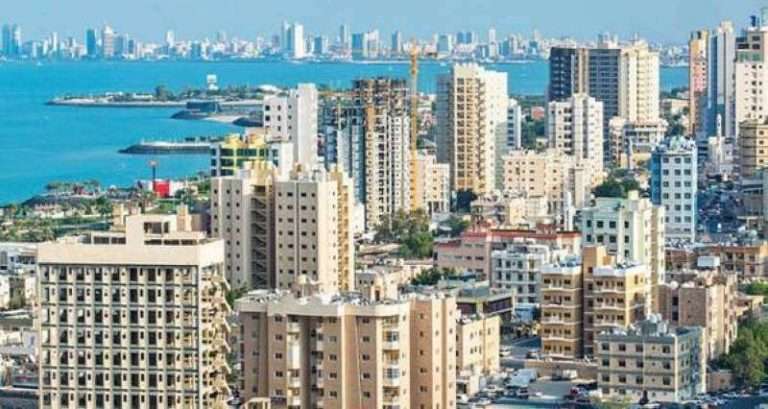Latest News
- Court Sentences Bank Employee To 5 Years For Embezzling 100,000...
- Fake ‘Sheikh’ Sentenced To 2-yr As Court Overturns Verdict
- Justice Ministry New Service On The Sahel App
- Ministry Probes 68 Cases Of Illegal Charity, Funds Collection
- Globally, Kuwait Is Among The Top Consumers Of Incense And Oud O...
- Decrease Seen In Foreign Investment
- Kuwait Customs Seized 2 Containers Laden With Tobacco At Shuwaik...
- Unpaid Salaries, Accountant Beaten Up By Workers
- The Sahel App Was Not Hacked, A Spokesman Claims
- Four Expats Arrested For Stealing Copper Cables Worth 60,000 Din...
- Indian National Died In Abdalli Car Accident
- Work Permits And Foreign Worker Transfers Are Amended By PAM
Corona Reversed Kuwait's Rent Trend

According to a number of real estate developers, the Corona crisis reversed the increasing trend in rentals that had been in place since the 2008 crisis, driven by high demand for housing units from expatriates, countered by restricted availability.
According to the Real Estate Union, there were 381 thousand units in 2018, 396.5 thousand units in 2019, 397.7 thousand units in 2020, and 396.1 thousand units in April 2021, before declining to 396.1 thousand in April 2021, while vacant units increased by about 20% between 2017 and 2021, meaning the rate in Kuwait was about 48.9 thousand apartments, which increased to 61,000 last year, at a rate of approximately 24.5 percent, and this increased in 2021 compared to 46,000 vacant apartments.
Due to the enormous increase in the number of unoccupied units in Kuwait, many real estate owners were obliged to lower rates in order to retain their tenants, which resulted in the loss of the rental momentum that had existed in previous years.
In response to a market in which the tenant has the upper hand and his alternatives are wider and cheaper, some landlords have decreased rates by 10% to 30%, while others have resorted to granting exemptions to court tenants in order to keep them from moving out to other apartments.
According to the Real Estate Union, the average rent price per square metre in Kuwait's various regions fell to 4.47 dinars in April 2021 and is expected to rise to 4.34 dinars this year, while the occupancy rate in the investment sector will fall to 82 percent in 2022 and rise to 85 percent in 2024.
Changing the demographic structure, liberating the land, involving the private sector in real estate development operations, and building investment cities, according to real estate agents, are factors that will have a significant impact on deepening the decline in rents in the future, except in cases of high rates of vacant units, as happened during the Corona crisis.
Many individuals, on the other hand, ask what elements determine the rental value of investment flats in Kuwait in the absence of a law that imposes a certain value on the lessor or establishes the reasons that enable the lessor to demand a specific value without the other.
Despite the fact that Kuwaiti tenancy law allows landlords to demand a rent increase after five years, many landlords did not do so in the last two years, instead of flirting with tenants with discounts and reductions in the wake of a wave of large evictions that hit the sector as a result of large numbers of expatriates losing their jobs and leaving the country.
The concept of supply and demand, according to realtors, is the criteria in this, since apartment rentals vary from one place to another, in addition to the size and quality of finishes and services, which makes it more appealing than any other region.
They stated that, because Kuwait is a capitalist country, the setting of apartment rentals is left to the free market and the agreement between the two parties to the contract, stressing that there are no rules requiring property owners to adhere to specified rental rates or a certain ceiling.
They noted that the increase in vacancies over the last two years, as well as the departure of thousands of expatriates, reflected the rise in the rent index, which has been on the rise since the 2008 crisis, due to the country's small size and the large number of expatriates, which outweighed demand oversupply.
According to the current Real Estate Union figures, there are 61 thousand unoccupied flats in Kuwait, with 335.1 thousand occupied apartments accounting for 84.6 percent of total units.
Trending News
-
 Eid Al Fitr 2024: Crescent Moon Not Sighted In Sau...
08 April 2024
Eid Al Fitr 2024: Crescent Moon Not Sighted In Sau...
08 April 2024 -
 Kuwait Implements Home Biometrics Services Ahead O...
14 April 2024
Kuwait Implements Home Biometrics Services Ahead O...
14 April 2024 -
 When Will Eid Al Fitr 2024 Take Place In Qatar, Ba...
08 April 2024
When Will Eid Al Fitr 2024 Take Place In Qatar, Ba...
08 April 2024 -
 On Sunday, The Meteorological Department Warns Of...
07 April 2024
On Sunday, The Meteorological Department Warns Of...
07 April 2024 -
 Kuwait Airways Provides Update On Flight Schedule...
14 April 2024
Kuwait Airways Provides Update On Flight Schedule...
14 April 2024 -
 Kuwait Airways Introduces Convenient Home Luggage...
15 April 2024
Kuwait Airways Introduces Convenient Home Luggage...
15 April 2024 -
 Gathering For Eid Al-Fitr Prayers: Kuwaiti Citizen...
10 April 2024
Gathering For Eid Al-Fitr Prayers: Kuwaiti Citizen...
10 April 2024 -
 Winners Of Kuwait National Assembly 2024 Elections
06 April 2024
Winners Of Kuwait National Assembly 2024 Elections
06 April 2024 -
 An Egyptian Expat Dies At Kuwait's Airport
11 April 2024
An Egyptian Expat Dies At Kuwait's Airport
11 April 2024 -
 Bay Zero Water Park Kuwait: Summer Season Opens Ei...
11 April 2024
Bay Zero Water Park Kuwait: Summer Season Opens Ei...
11 April 2024












Comments Post Comment